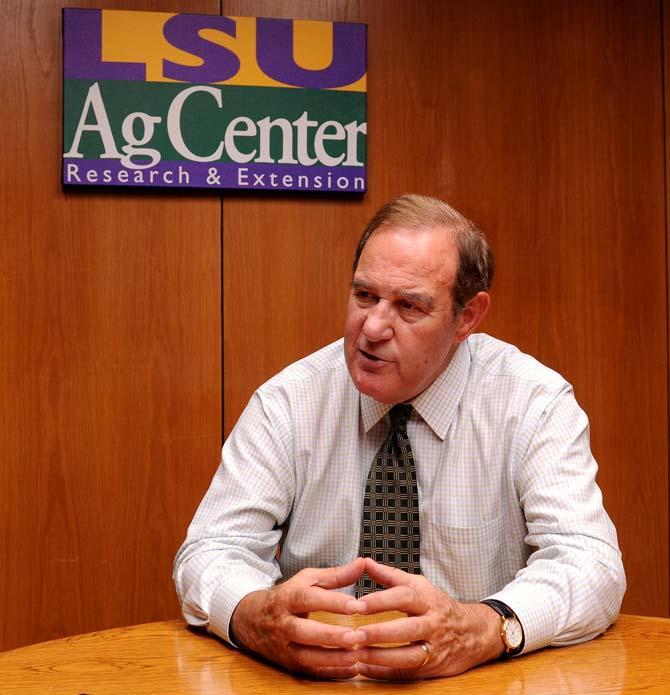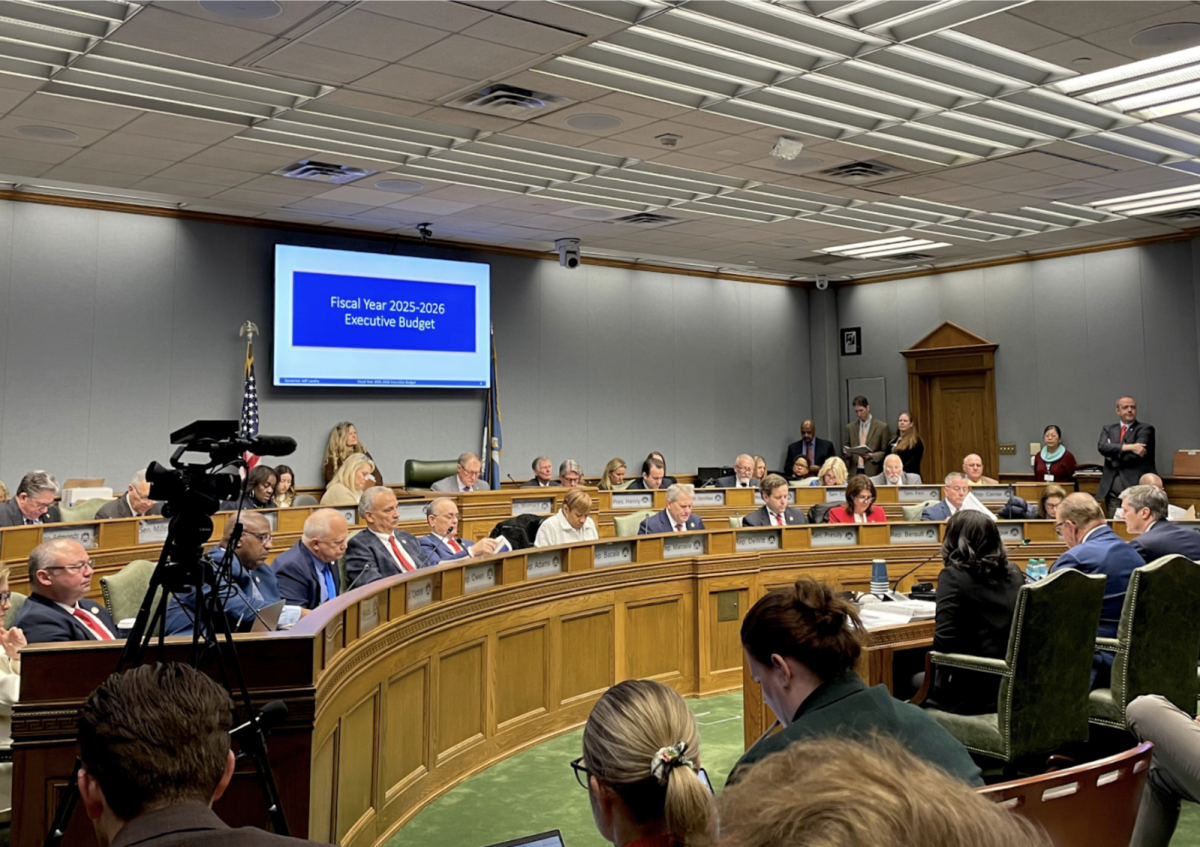The Board of Supervisors approved the administrative consolidation of the LSU AgCenter and the College of Agriculture Friday, uniting the AgCenter’s research and extension missions with the College of Agriculture’s teaching mission.
The consolidation created a new vice president for agriculture position filled by William “Bill” Richardson, chancellor of the AgCenter since 1997. He will also serve as dean of the College of Agriculture beginning Oct. 8 when the current dean, Kenneth Koonce, retires.
Richardson said consolidation is a positive step because the AgCenter internally reorganized to unite research and extension in the spring. The separate vice chancellor positions, whose occupants directed either research or extension, were eliminated, transferring those duties to Richardson.
Having everything under one person and not dividing the AgCenter’s programs along research and extension lines has been one of the best things the AgCenter has done because it “has people thinking as one now, not two,” Richardson said.
The AgCenter was created as a separate campus to house research and the cooperative extension service in 1972, divorcing those two missions from the College of Agriculture’s teaching program and creating joint appointments between the two campuses for faculty. Putting the AgCenter and College of Agriculture back under the same administrative umbrella will promote efficiency and eliminate duplication of services and paperwork, Richardson said.
While the AgCenter will retain its budget autonomy from the University, the consolidated
administration will now have a single
agriculture budget to invest in teaching, research and extension, Richardson said. Previously, each mission had a separate budget, which sometimes caused skirmishes that Richardson had to referee as chancellor, he said.
Consolidation means the AgCenter will now have to consider how teaching fits into its broader mission.
“That was never a discussion at this table before,” Richardson said. “Occasionally, it would come up — well, that may impact their teaching program — but that was the dean’s problem, not ours.”
The AgCenter currently has four program leaders in charge of family and consumer science, plants, animals and 4-H who consider their areas in terms of both research and extension, he said. With consolidation, teaching will be added into the mix.
“Now we’ve got a situation where we’re going to have all the missions of the land grant system sitting at the same table,” Richardson said.
Ken McMillin, meat science professor and chair of the AgCenter Faculty Council, said faculty members are generally excited about the consolidation because they have been hindered by bureaucratic division in the past. Having a common goal for agriculture at the University will make it easier for faculty to serve their clientele, which includes the University, Louisiana and the international scientific community, he said.
Extension agents, research station directors and other AgCenter employees located outside of Baton Rouge will feel less distant, McMillin said, integrating them, and their expertise, further into the University’s agriculture efforts.
Richardson said the College of Agriculture has teaching needs that can be met by people with research and extension appointments. Consolidation may allow well-qualified
AgCenter employees to join the graduate faculty, which was previously impossible because of Southern Association of Colleges and Schools (SACS) accreditation, he said.
Richardson, who was associate dean of the College of Agriculture from 1986 to 1992 and dean from 1992 to 1997, said he is looking forward to interacting with students again. He also said the AgCenter will become valuable to the University’s recruiting efforts, especially among minorities, because extension agents work with 4-H students throughout the state, 43 percent of whom are African-American.
McMillin said the AgCenter’s statewide presence would help improve geographic diversity as well because the University does most recruiting in a seven to eight parish area.
Board approves AgCenter, College of Agriculture consolidation
September 8, 2013
Vice President of Agriculture Bill Richardson serves as Dean of the College of Agriculture and the LSU AgCenter.
More to Discover









